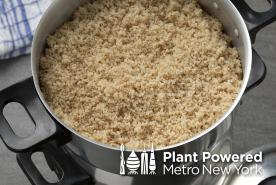August 12, 2014
 More and more Americans are obese. And, more and more Americans are developing CKD. This epidemic is so great that nearly one–third of all adults are now classified as obese (BMI > 30 kg/m2) and more than one in every eight Americans has chronic kidney disease.
More and more Americans are obese. And, more and more Americans are developing CKD. This epidemic is so great that nearly one–third of all adults are now classified as obese (BMI > 30 kg/m2) and more than one in every eight Americans has chronic kidney disease.
Are these epidemics of chronic kidney disease and obesity related? They may be. One study showed that men and women who were obese were 3 to 4 times as likely as those who had never been obese to need dialysis. Why does obesity affect the kidneys? One problem is that excess fat crowds the kidneys and compresses them. Another problem is that the kidneys have to work harder to keep up with a bigger body. Yet another issue is inflammation, which occurs in obese people. Other factors that are more common in the obese are insulin resistance (changes in how your body responds to sugar) and blood pressure raising hormones (angiotensin and renin).
It’s been known for a long time that overweight and obese individuals are more likely to have one or more chronic diseases including high blood pressure, diabetes, and heart disease than those of ideal body weight. All of these chronic diseases increase the risk of chronic kidney disease.
If the excess weight is mostly around the middle (apple shape), you are more likely to develop obesity-related health problems than if the weight is around your hips (pear shape). Waist size is one factor that indicates you are at higher risk of chronic diseases, including CKD.
Recent research shows that weight control may also preserve kidney function, and that it can also help improve heart health. Losing as little as 10 pounds can help control high blood pressure and reduce the risk of diabetes and heart disease. Because of the risks, weight loss surgery is sometimes recommended in cases of severe obesity.
Everyone knows how hard it is to lose weight, but it's possible to succeed with a lot of work. Here are five things you can do that will help:
- Learn how to make healthier food choices and learn what a good portion size is. Your doctor or a registered dietitian can help you understand these.
- Eat fewer foods that are high in fats (fast food, butter, oil, lard, etc.) and sugar. Eat more “whole wheat” carbohydrates rather than “white” carbohydrates (white breads, bagels, white pasta, white rice, etc.).
- Eat a wide variety of foods that are not processed. Choose fruits and vegetables, lean meats and fish, whole grains and low-fat dairy products.
- Learn how to read nutrition labels when you shop for foods. Look for high levels of fiber and low levels of fat, sugar, and carbohydrate.
- Increase your physical activity. If you are out of shape, start slowly with a few minutes a day, and build up as you gain strength.
People who have successfully lost weight have found these tips to be helpful:
- Keep a food diary of everything you eat.
- Drink more water, especially before meals.
- Shop from a list and shop after you have eaten.
One more tip: Call the National Kidney Foundation’s toll–free number 1–800–622–9010 and ask for information about risk factors for chronic kidney disease.

















